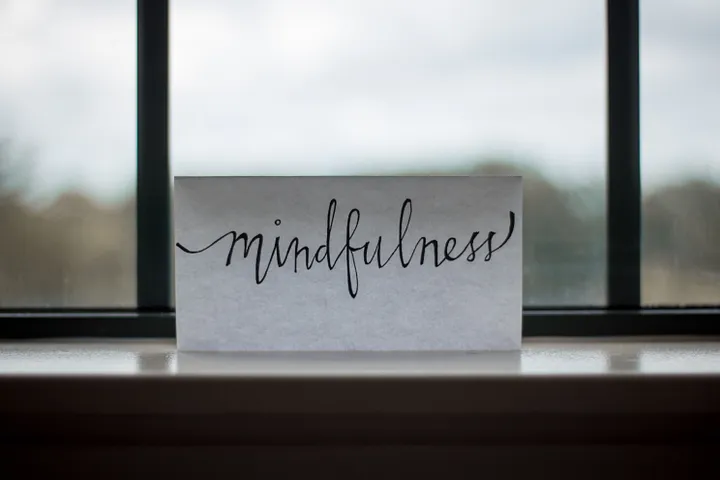Have you ever said something in your social circle or over the internet that you later regretted?
In the heat of the moment, we’ve all put our foot in our mouths. But when it comes to social interactions, some people seem to be a magnet for saying the wrong thing.
You know how important it is to think before you speak if you’re socially aware. You understand that words can hurt, and you try to avoid saying things that might offend or hurt someone else.
The beauty of social awareness is that a few simple adjustments to what you say can vastly improve your relationships with other people. — Travis Bradberry
If you’re not careful, you might say things that offend or hurt others. But even the most socially aware people can slip up sometimes.
Here are 8 expressions that people with a high level of social awareness avoid uttering, followed by ideas for what they could say instead.
1. “Why can’t you just be normal?”
This question is often directed at people who are perceived as different in some way. Maybe they dress differently, act differently, or have different beliefs.
Whatever the difference may be, it’s not polite to ask someone why they can’t just be like everyone else.
Embrace difference and accept people for who they are. If you can’t do that, try to keep your thoughts to yourself.
To avoid offending someone, you may say, “I’m not sure I understand why you’re doing that, but I respect your right to do it.”
2. “You’re so sensitive.”
When someone gets offended or hurt by something you’ve said, it’s not helpful to tell them they’re being too sensitive. It invalidates feelings and makes them feel like they’re overreacting.
A more helpful response would be to apologize and try to understand where they’re coming from.
You might say, “I’m sorry, I didn’t mean to hurt your feelings.” This shows that you’re willing to take responsibility for your words and care about how they affect others.
3. “No offense, but…”
This expression is often used to preface a comment that could be offensive. But it doesn’t make a comment any less offensive in most cases.
It’s usually better to avoid saying something that could be offensive in the first place.
If you must say something that could be construed as offensive, try to soften the blow by couching it in terms of your own opinion.
For example, you could say, “In my opinion, I think that…” This shows that you’re aware that everyone may not share your opinion and that you’re open to hearing other people’s perspectives.
4. “I’m not racist, but…”
Being an immigrant, I faced this expression many times in social gatherings. This expression is often used to preface a racist remark.
But even if you’re not intentionally trying to be racist, your words may still hurt people of color. It’s essential to be aware of the potential impact of your comments, even if you don’t mean them to be hurtful.
Instead of saying “I’m not racist, but,” try to avoid making any comments that could be interpreted as racist.
If you must say something that could be seen as racist, qualify it by saying something like “I don’t know if this is racist, but…” This shows that you’re aware of the possibility that your words could be interpreted negatively.
5. “You’re too skinny.” / “You’re too fat.”
I used to be really skinny at a 6’3″ frame. I always feel embarrassed when someone commented that I’m too skinny.
Commenting on someone else’s weight is almost always inappropriate. People of all sizes have a right to feel good about themselves, and your words could make them feel bad about their bodies.
Focus on complimenting people on their inner qualities instead of their outward appearance.
You might say something like “you’re so kind” or “you’re so smart.” This shows that you value them as a person, not just for how they look.
6. “That’s so retarded.”
I personally hate this word, I feel it’s an obsolete word. It’s often used to describe something that’s perceived as stupid or foolish.
But it’s also a derogatory term for people with intellectual disabilities. So using it in this way can be hurtful and offensive.
Instead of using this word, try to find a different way to describe whatever it is you’re trying to say.
For example, you might say, “I’m curious why you would do something like that,” or “I don’t understand why you think that’s a good idea.”
This shows that you’re aware of the word’s negative connotations and that you’re trying to avoid using it in a hurtful way.
7. “It’s not my fault.”
When someone is facing a difficult situation, the last thing they want to hear is that it’s not your fault. This shows that you don’t care about their situation and that you’re not willing to help them.
A helpful response would be to offer your support and assistance.
You might say something like, “I’m sorry that happened; how can I help you?” This shows that you’re concerned about their well-being and willing to do what you can to help them.
8. “Everything happens for a reason.”
When someone is going through a tough time, they don’t want to hear that everything happens for a reason. This can feel like a situation is somehow disparaging.
A helpful response would be to offer your support.
You might say, “I’m sorry you’re going through this; I’m here for you.” This shows that you care about others’ well-being and that you’re ready to help them in any way you can.
The bottom line
I think it’s always important to be vigilant of what you’re doing and aware of your surroundings. — Leona Lewis
Socially aware people avoid saying these things because they understand the potential harm they can cause.
They know that their words can hurt other people, and they want to avoid saying anything that might make someone feel bad.
So the next time you’re tempted to say something on this list, think about how it might make the other person feel. If there’s a chance it could hurt them, it’s best to don’t say anything.
Book recommendation: Emotional Intelligence 2.0 by Travis Bradberry (amazon affiliate link)
Thank you for reading; follow me and clap a couple of times.




